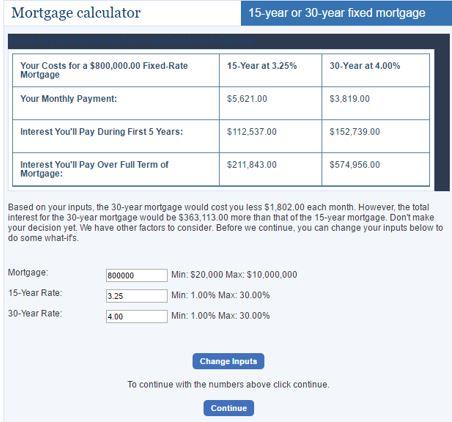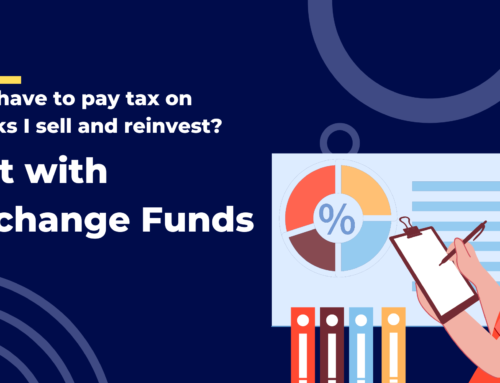The old saying that there are only two sureties in life, death and taxes probably never bought a house in the Bay Area. If they had, they would know that paying too much in interest over time should be added to the list. In this post, I will discuss both interest costs and tax deductions. By no means am I disparaging the purchase of real estate, I am just trying to shed some light on the darker side of taking on additional debt. I will walk through a local case study to show just how much in interest and tax deductions buying a house in the Bay Area may cost you over time and delve into the relative value of the mortgage interest deduction on your taxes.
If you are reading this blog and you aren’t from San Francisco, then you will be shocked at the real estate prices locally here. A two-bedroom condominium goes for approximately a million dollars or more these days. Even at today’s ultra-low interest rates, buying a home here is a daunting task. As a financial advisor during tax season, I field quite a few calls from my clients saying that they just met with their CPA and that he/she told them they need more tax write offs. The knee jerk reaction is to buy real estate and deduct the mortgage interest. If the client already owns their home, then often the idea is floated to buy a rental property. A rental property does afford a few more opportunities for deductions other than just interest, but conversely, it turns the buyer into a landlord and therefore, a mini business owner. Being a landlord can be a very difficult and costly proposition and I may address the subject in a future post. According to Nolo.com, landlords can deduct interest, depreciation, repairs, professional fees and a few other expenses which can often times make the difference between a profitable and a non-profitable venture. Many people with great careers get sidetracked when becoming a landlord as managing real estate can become nearly a full time job. My simple conclusion is, if you need more deductions, then you are making great money, congratulations, it’s a high class problem. Just because you are doing well income wise, it is not a reason to become a landlord and take on the mantle of becoming a small business owner just to save a few bucks in taxes. Perhaps it is better to congratulate yourself, give yourself a pat on the back that you are making great money and simply let Uncle Sam take a few more of your hard earned dollars than you would like.
Case Study: Let’s look at buying a condo in San Francisco and compare a 15-year mortgage to a 30-year mortgage. I have taken a snapshot of a comparison of the payments and interest of the two terms from bankrate.com. Assuming the condo price is 1 million dollars with 20% down. Your payments and interest would look something like this:

This simple calculator as it is very transparent and it really is staggering the amount of interest you will pay over time. Even with today’s historically low interest rates, that is a whopping amount of interest over time no matter which term you choose. If you take a 30 year fixed rate loan, you will pay over half the price of the condo in interest and well more than twice the amount in interest as you would on a 15-year loan. The flip side of course is that your monthly payment on the 15 Year loan is 1,802 dollars a month more than that of a 30-year loan. Paying nearly $6,000 a month in a mortgage is enough to cramp nearly anyone’s style. So taking a shorter term may save you money, it may also cramp your lifestyle as your monthly cash flow can be strained. It may also make it more difficult to save enough cash for an emergency fund.
Now let’s take a hard look at deductions. How much can you really take? There are many out there who claim that the 30-year mortgage is a better option because you can deduct more in interest. While this claim is true, it is only because you are paying more in interest! It is much like justifying buying something on sale because you are saving money on that item. If you hadn’t bought the item in the first place, you would have saved ALL the money and your bank balance would be larger. Let’s take the example above and compare the “tax savings.” If you are lucky enough to be in the highest tax bracket which means you get to deduct the most (35 cents for every dollar in interest you spend), the savings may not be worth taking out the loan. So for the 15-year loan, you will get to deduct $74,145 dollars and for the 30 year, you can deduct $201,234. That is a big spread but let’s remember the 15-year mortgage is still paying less than half of the 30-year term in interest. Unless the real estate you buy goes up tremendously in value over time, it is a very expensive way to save a few bucks.
In full disclosure, I am both a home owner and a small landlord and I am thankful to be both. There are however, other places to invest your hard earned other than borrowing money to buy real estate, especially if it is driven by the desire to get a tax deduction. In short, think twice before investing once. I hope the case study and the information presented here has at least opened your eyes to the staggering interest cost when borrowing money. In my next post, we will dig a bit deeper into real estate pricing and will present data my esteemed colleague Colby Davis has uncovered in his research on real estate markets.
Disclosures: This post is solely for informational purposes. Past performance is no guarantee of future returns. Investing involves risk and possible loss of principal capital. No advice may be rendered by RHS Financial, LLC unless a client service agreement is in place. Please contact us at your earliest convenience with any questions regarding the content of this post. For actual results that are compared to an index, all material facts relevant to the comparison are disclosed herein and reflect the deduction of advisory fees, brokerage and other commissions and any other expenses paid by RHS Financial, LLC’s clients. An index is a hypothetical portfolio of securities representing a particular market or a segment of it used as indicator of the change in the securities market. Indexes are unmanaged, do not incur fees and expenses and cannot be invested in directly.






